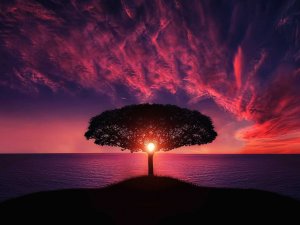Most readers will look askance at my clubbing the two together. We generally don't think of lawyers and pastors serving a common purpose or having a similar mindset. In our minds they reside worlds apart, even at cross purposes to each other, rarely coming close.
This becomes supremely clear when we realize that Sikhi has no ordained priestly class with its inherent ecclesiastical authority. Any respect that a Sikh serving as a minister gets derives from his or her own personal place in society and is not necessarily connected to the office.
In the common perceptions in the wider contemporary society, a lawyer is perhaps none else than a modern hit man. A generation or two ago, if we had irresolute differences with our fellow humans and there was no solution in sight, we would fight our battles personally or hire hit men.
Now the hired help is different as is the arena. In our civilized, cultured existence, we depend on a hired hand to fight our duels and get us justice in a courtroom. And the rules of battle are well defined. There is even a referee or a judge - an arbiter of our do or die struggle.
Come to think of it, the priest or pastor is not much different. He weighs our sins in this life and awards us reward or punishment generally in the next. He is also able to award some punishment in this world like withholding the sacraments of the faith for a limited time or for life. When our transgressions appear outrageously beyond the pale, he may pronounce a sentence of eternal hell, fire and damnation - forever, like a life sentence without parole that our secular courts might dispense. Often his edict might be accompanied by another - that the sinner be shunned. But the rules of evidence are different.
Such idle musings with my lawyer-friends have brought me to the point where the two juridical systems appear not quite so far apart - almost like kissing cousins. Of course, in our civilized existence, neither the lawyer nor the rabbi is reduced to the derogatory status of "hit man."
A society of people - whether religious or not, related by blood and family or one of strangers who chose to share living space - find soon enough that they are interdependent and that much synchrony and symbiosis are necessary for survival; they enrich the quality of life.
An automatic next step is to construct and agree on rules of conduct that govern the individuals and a system where every participant has a voice and a stake. At the same time a code and process for enforcement of rules become vital. Living societies then bring forth people who have a vision of how that society functions coherently and predictably.
This is how families survive, societies are born, and nations come into existence.
Who then are the philosophers of a society that define its vision, parse it, interpret it, and ensure that there is a code of conduct - a set of laws - to keep the engines rolling?
Of course, that would be the lawyers if we are in a non-religious secular society. Lawyers don't often define the fundamentals of a society. For example, it was not lawyers who first cogitated on and advanced the idea of fundamental rights of people in this country when it was founded. That is a function of the people - vox populi - a democratically elected legislature that is the voice of ordinary citizens. Even today laws are hammered out by the legislature that is the voice of the people. But it is lawyers on whom we depend for applying these laws and interpreting them.
Let’s look at some history: Now when we need to know if we should include women, Blacks and Asians who are clamoring to be included among those who are also endowed with equal rights, or debate whether to grant equal rights to gays in the people that enjoy equal rights and protection of the law, where do we go? Of course, to the philosophers of our society: the lawyers.
Is a particular punishment cruel and harsh? The lawyers will parse that question. What to do with a habitual offender (an egregious sinner to a pastor?) like a Bernie Madoff? Again, lawyers will help us crack that nut. Shall we wage preemptive war? How shall we define the rights of mothers, fathers and children when a family falls apart? The lawyers will help us interpret the laws and tweak the results.
Vox populi is indeed vox dei but it needs translation, interpretation and application. And the lawyers make that possible. Their preoccupation, indeed their raison d'être, is and should be the creation of a just and secular society where every person and every religion, too, has the freedom to exist and an equal place at the table.
Hence my moniker for them: "philosophers of modern society."
Others who find that the voice of God is channeled through the clergy know that in a congregation (sangat, in Sikh parlance), it appears as the voice of the people.
Thus are religions born and practiced until they are corrupted by the levers of political or economic power.
My analogy gains strength from the fact that even in the most secular societies many of the rules of conduct spring from the religious underpinnings of a society. This is necessarily so because individual values in their collectivity shape a society, while values of individual morality and ethics often spring from and are grounded in religious formulations.
This absolutely does not mean that religious people have a franchise on ethics and morality or that atheists and agnostics cannot be moral icons.
What it means is that keeping in view the increasingly multi faith character of many societies and the consequent imperative of separating church and state, it becomes critical to highlight the values and rules but not a defined route or a particular model of religion. A secular society, even though with religious values at its core, has no business diminishing even the atheist. That’s why Jefferson could aver that “It does me no harm if my neighbor thinks there are twenty gods or that there is none.”
Since most societies depend on religions to dissect and teach the ethical and moral framework of a society, it follows then that the clergy should be pushing less a life in the hereafter and more a behavioral model for a progressive connected people in this life. Then and only then can a religion define a way of life.
It seems then that pastors and lawyers should be supplementing and complementing each other's efforts and not working at cross purposes.
I wish that lawyers would not follow Abe Lincoln's mocking words to "hammer the facts if you have the facts on your side, hammer the law if you have the law on your side, and hammer the table if you have neither the facts nor the law on your side." Then it might move us beyond Shakespeare's advice asking that we "first kill all the lawyers."
Lawyers honor precedent, yet are able to, and often delight in, tweaking and extending its interpretation. Pastors, on the other hand, often tend to hide behind tradition, dub it sacrosanct, and refuse to entertain any inquiry into it. It seems that where one enlightens the other obscures. Perhaps this indicates the inability of clergy to explore their own limitations. Introspection that should be a pastoral trait rarely appears to be.
Exceptions are few and delightful. The Talmud presents a significant departure in religious practices in that it remains an ongoing reinterpretation and application of scriptural writing. On the other hand, there exist impressively brilliant legal minds, too, which are most reluctant to move beyond a literal interpretation of law in order to remain faithful to the original intent and language of the society's founders from centuries ago. Some such minds even end up on the Supreme Court.
If law posits an adversarial confrontational model for ferreting out the truth, it seems that religions and the clergy that advocate an exclusionary vision are not much better when they fail to promote the universal connectivity that binds us all, irrespective of the religious label .
In religions, the system of ecclesiastical justice is often such that the clergy seems to retain the power of prosecutor, judge, jury and hangman; often the various roles are conflated in religion. Not so in law.
Earlier I had drawn a distinction between the law that punishes us as soon as it can catch us for our transgressions in life, and religions that punish our sins in this life with consequences in the next. But it was not always thus.
Until the middle ages, religions demanded their pound of flesh here and now - and they could do so because of the unholy alliance of "church and state." This is best illustrated historically by the crusades, jihads and the Inquisition. Even though rare, shades of this continue to exist. Look at one manifestation of Islamic law (sharia) in which an adulterer is stoned to death even today in some societies. Most present day religions, however, having lost political and military supremacy are content to condemn the sinner to shunning in this world or punishment in the hereafter.
Religions progressively lost their earthly muscle when political power and religious authority remained no longer joined at the hip. Clearly, a model of vigorous debate in an adversarial system with an unbiased judge in the middle to weigh precedent and law cannot occur in religious societies when clergy assumes powers of prosecutor, jury, judge and hangman. This destroys the presumption of innocence that is the hallmark of functioning secular societies that proudly proclaim the rule of law.
It is in discussion and debate that we define our goals, sharpen our focus and hone our skills. Law lives and dies by this adversarial model. Religions, on the other hand, run away from discussion and dialogue. This is true of the Sikhs as well even though conversation, discussion and debate were Guru Nanak's preferred methods of teaching. But that is a topic for another day and I have written some on it.
Sikhs were willed by their Gurus a system of justice that was open, just and accommodating. Its hallmarks were transparency, accountability, self governance and compassion. But we seem to have lost it. The lessons of that lost history demand discussion, debate and rediscovery.
One fundamental of the Sikh historical narrative is the miri-piri doctrine. It is often erroneously interpreted to mean that politics and religion are inseparable. Others rightly suggest that piri qualifies miri in the sense that we need to conduct our worldly affairs (settle our differences, allocate resources, frame and execute policy, for example) within an ethical framework.
In secular societies, apparently lawyers arguably have become "hit-men" because they have lost sight of the moral underpinnings (the piri, so to speak) of their profession, and this underscores the need for some soul-searching. A fine example of discourse on this is The Lost Lawyer: Failing Ideals of the Legal Profession by Anthony Kronman, the Dean of Yale Law School.
Sikhi once had a somewhat embryonic model system of internal justice, one that was centuries ahead for that culture and time, but one that we failed to treasure or nurture. It promised a body of precedent (tradition), a five member panel of Sikhs in good standing (a jury of peers?), with the Akal Takht as the highest seat where matters could be argued and justice rendered.
To drive the lesson home, Guru Gobind Singh himself appeared at such a panel, as did Maharaja Ranjit Singh (the much admired 19th century ruler of Punjab), as well as a ho-hum Chief Minister of Punjab, Surjeet Singh Barnala in the late 20th century.
The lesson: No one is above the law - not even a Founder-Master of the faith.
But we seem to have mutated Akaal Takht into an all-in-one prosecutor, judge, jury and hangman. This, in spite of the fact that its head (Akaal Takht Jathedar) remains a bureaucrat not necessarily steeped in Sikhism -- its traditions, history or laws. These are fundamentals from which should flow interpretations and applications.
Have we then stopped the evolutionary process of Sikh society and its laws? Have we become frozen in time?
I have argued elsewhere how we should look at the five Takhts, how judges (Jathedars) should be nominated, appointed or removed; what qualifications should they come with. An ecclesiastical system of justice requires a whole new system of lower courts and procedural safeguards that we haven't even thought about. What we absolutely do not need is a pope, who speaks ex cathedra from the Chair of Saint Peter on matters of faith and morals, but that's what we seem to be relentlessly pushing towards.
I see that during the past decade many young dedicated Sikhs have chosen law as their life's work. I salute their spirit and skill at dissecting ideas as well as their commitment to Sikhi; these two must go together. I specially acknowledge a few Sikh attorneys - especially those associated with SALDEF, Sikh Coalition and United Sikhs. They are moving us into the 21st century as equal citizens in a progressive society.
I particularly want to note here their disputations and conversations that have benefited me immensely in exploring this topic today. I have never seen a lawyer hankering after anonymity, but these young people chose to remain unnamed today.
For much of the world, morals have a religious underpinning, but elaborate theories of morality and justice have also been articulated in ways that leave religions largely, if not entirely, out of the mix. Yes, lawyers have a lot to learn about morality, but priests/pastors have a lot to learn from law and lawyers in a just society.
Consider this: If a judge or jury abandoned the rules of evidence and relied instead on "faith and reputation" of the accused to send a man to prison, a popular outcry would ensue, and rightly so, against what would be deemed a "miscarriage of justice"; both pastors and lawyers would be marching alongside the rest of us.
On the other hand, when preachers make claims about the nature of “divinely ordained morality” with certitude, they aren't as faithful to the rules of evidence as they should want to be. This then becomes intellectually dishonest or hypocritical, especially when preachers try to turn their edicts into public policy.
Pastors and lawyers need each other. History tells us that the early training for a lawyer until as recently as the mid-19th century was only apprenticeship and the education for a gentleman; for a pastor it was faith, dogma and little else. Hence this essay that is a tribute to law, lawyers and pastors, even though many of them shake their heads in disbelief when I push what I have argued here.
There was a time when I dismissed both pastors and lawyers peremptorily. They were little more than their shenanigans, I thought. A friend saw this essay while it was still under construction and quickly blurted out, "Lawyers have the integrity of used car salesmen and the style of ambulance chasers."
Said I: "And pastors are now widely associated with pedophilia, while surgeons and anatomists historically shared their professional identity with barbers and grave robbers respectively." (I am an anatomist.)
Now, if I had my druthers, I think I'd both a lawyer and a pastor be -- exactly half of each.





